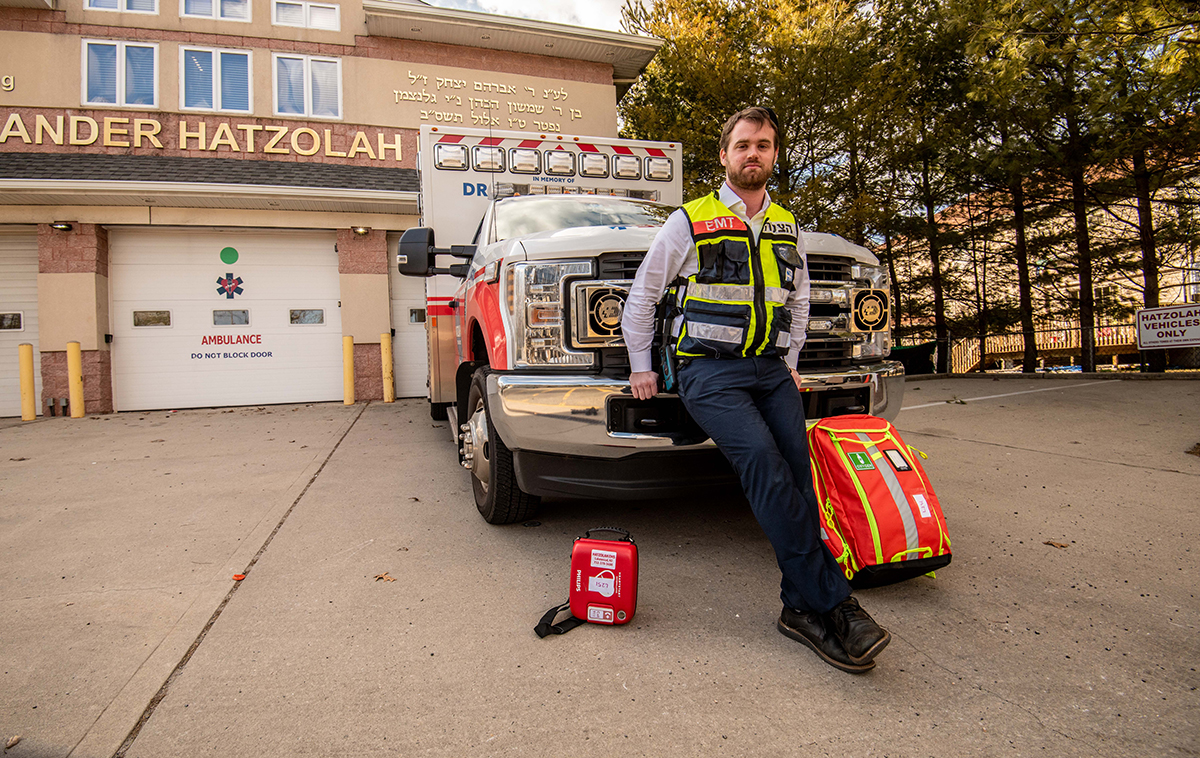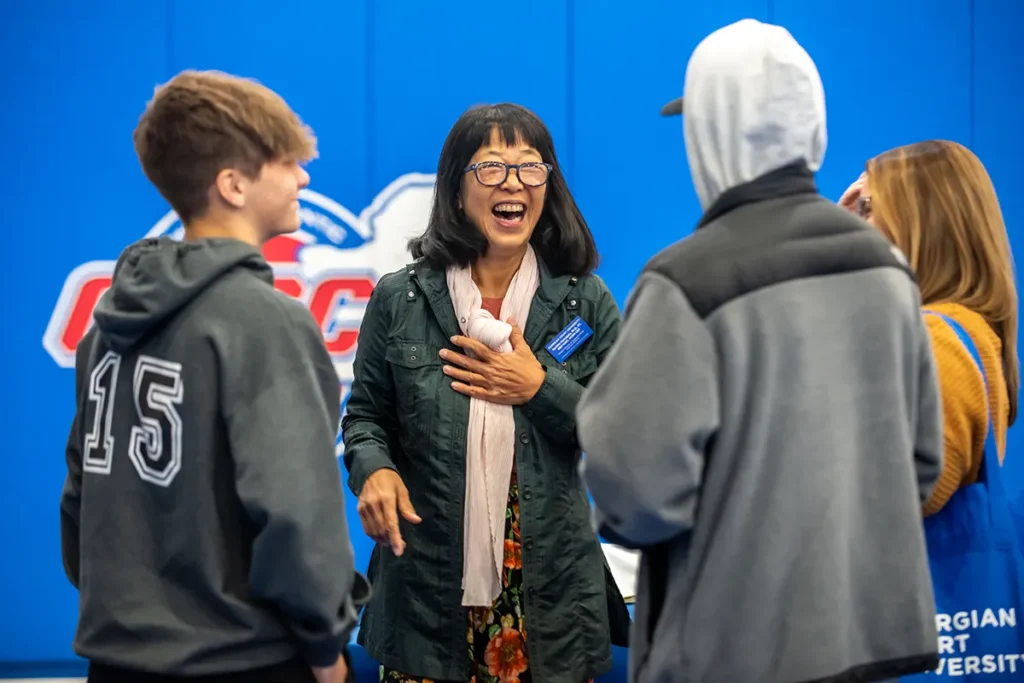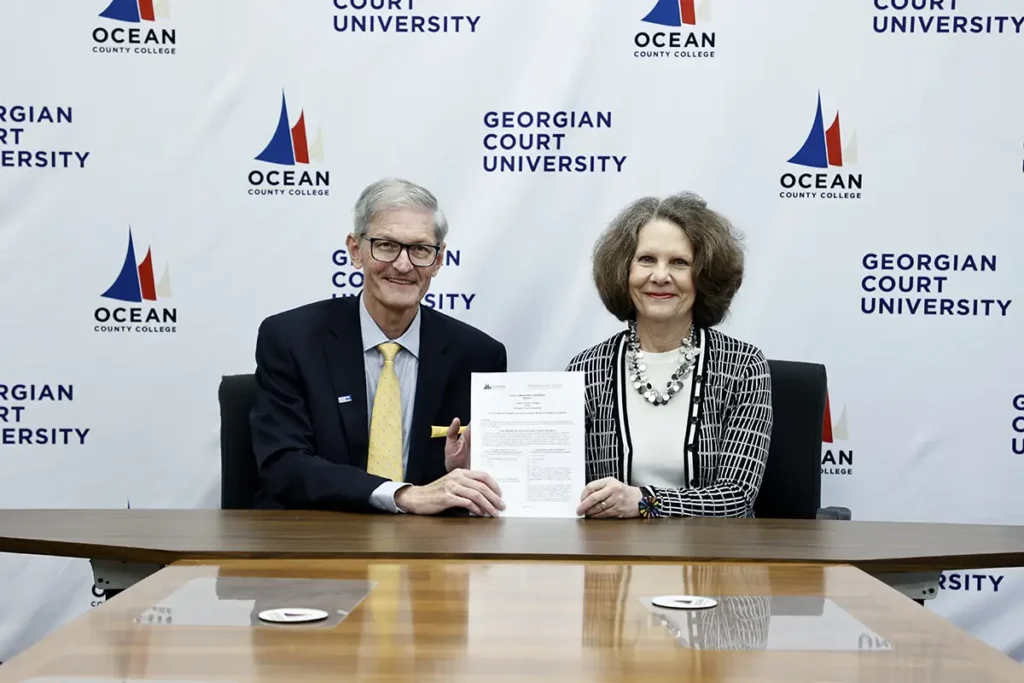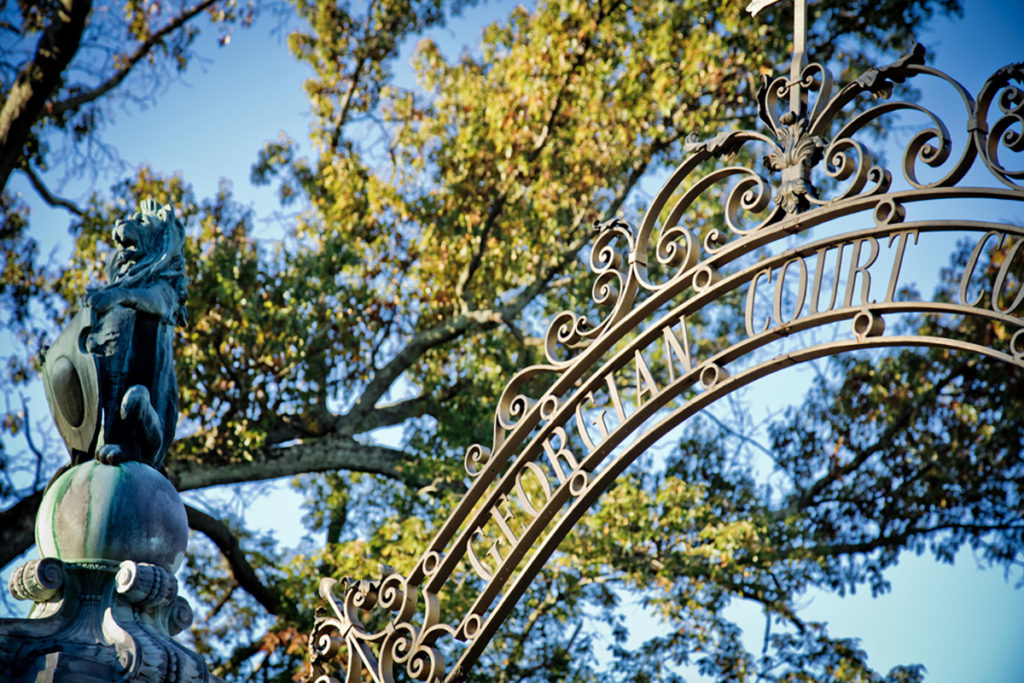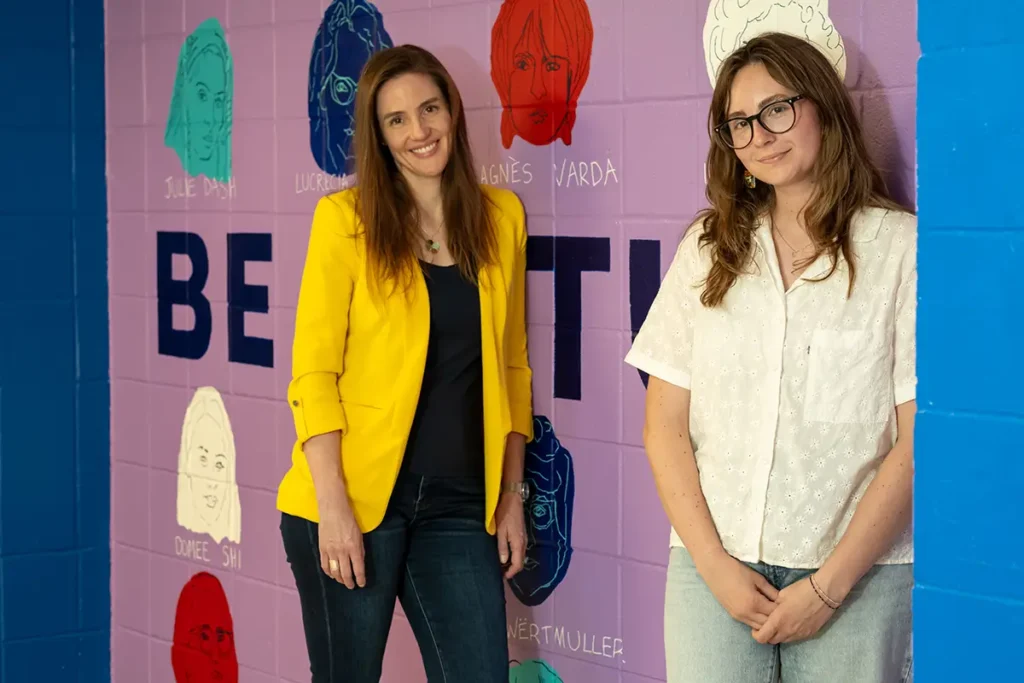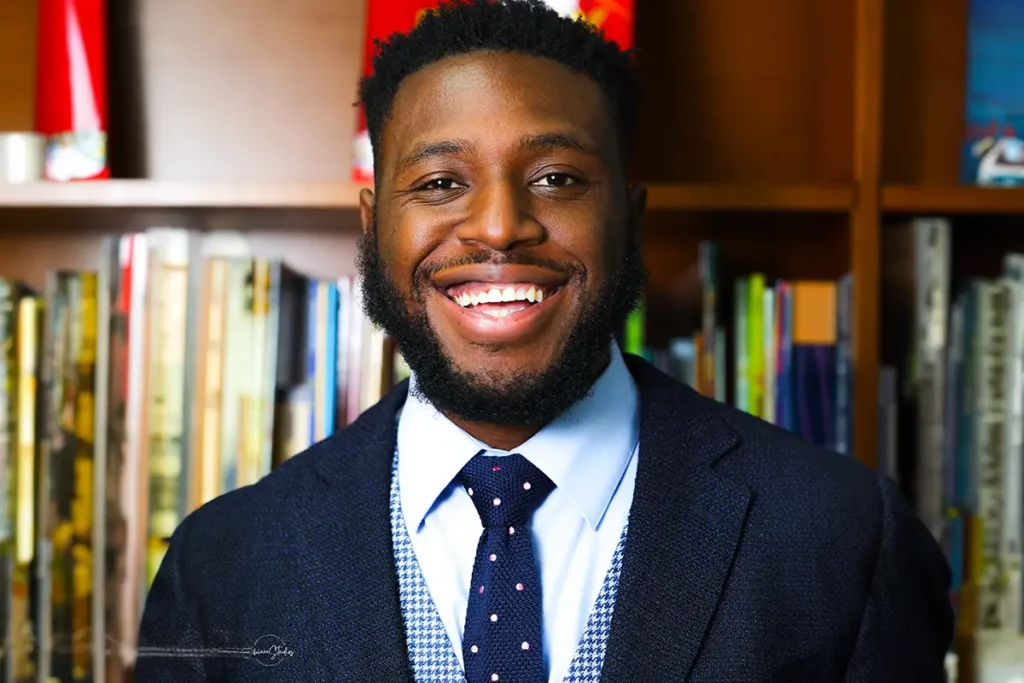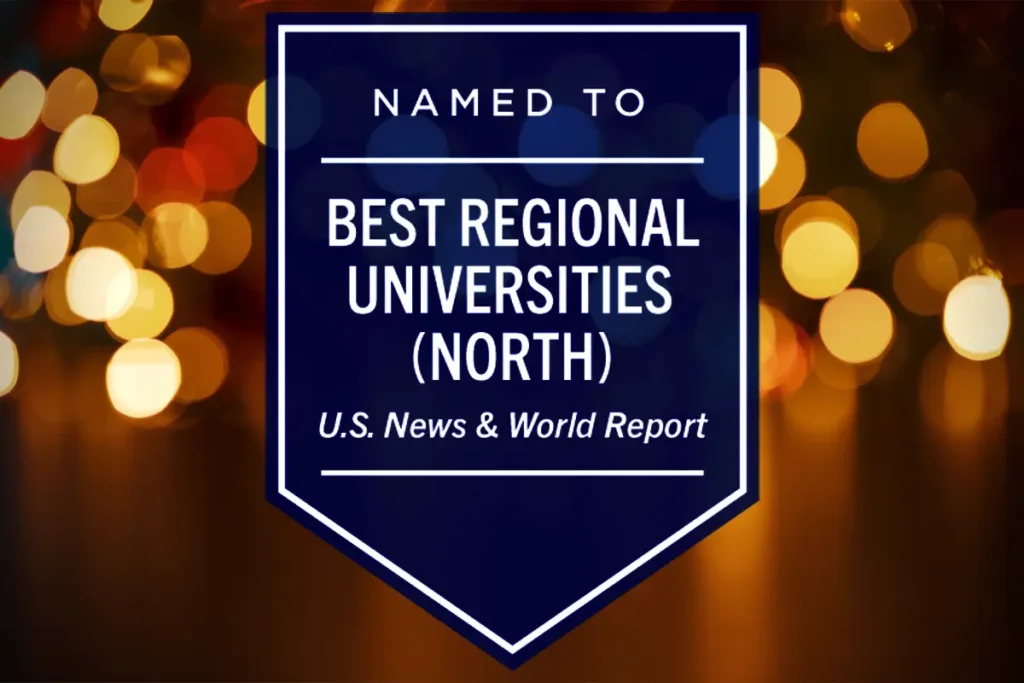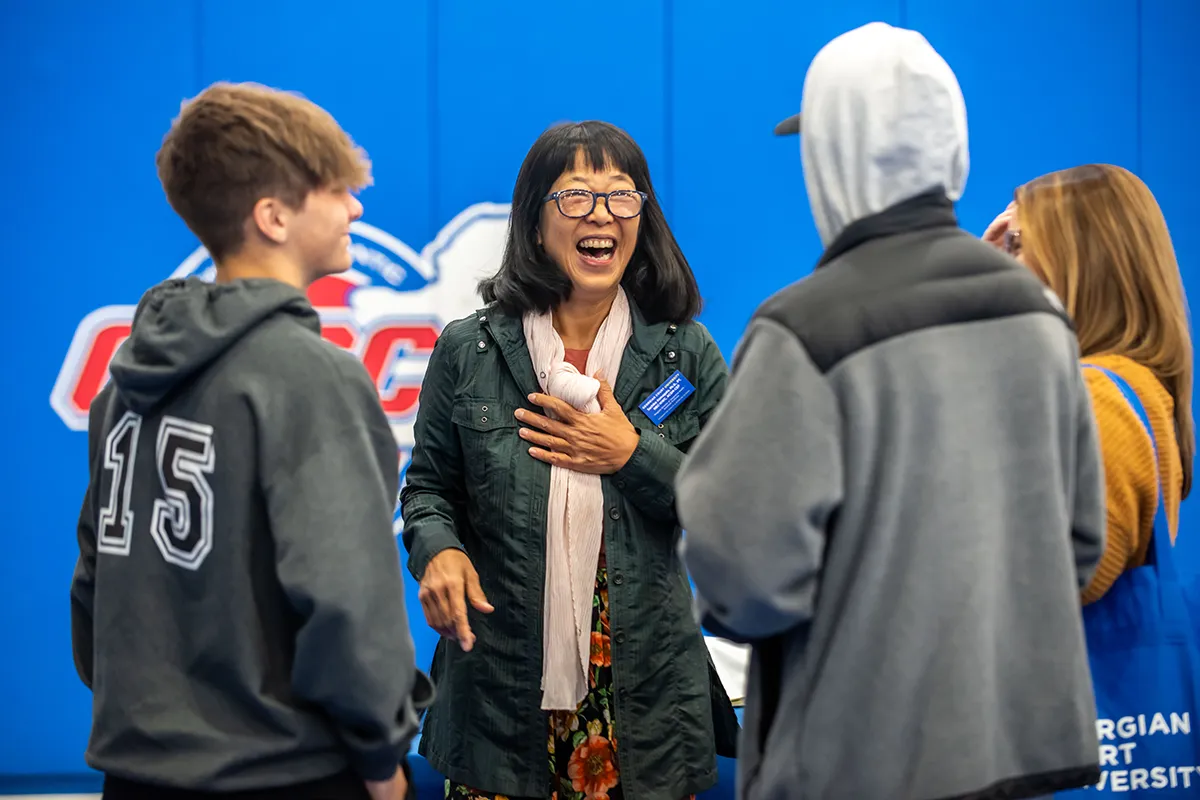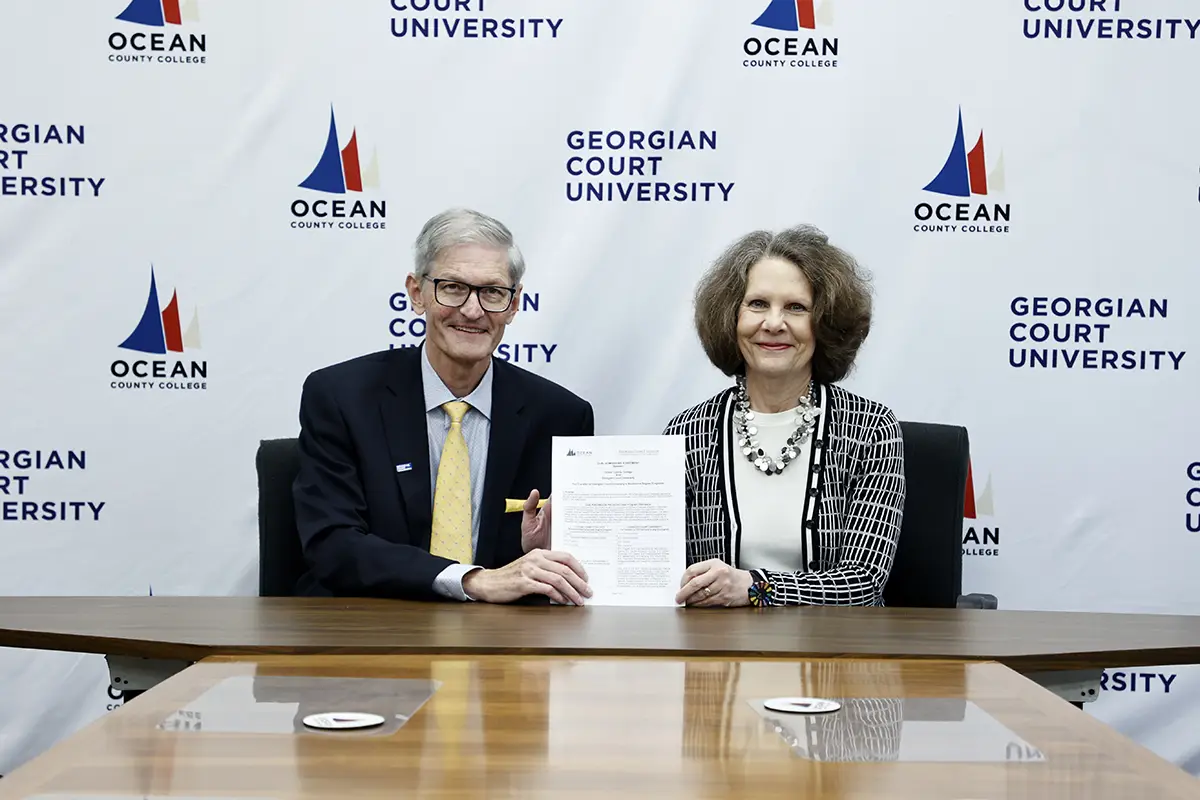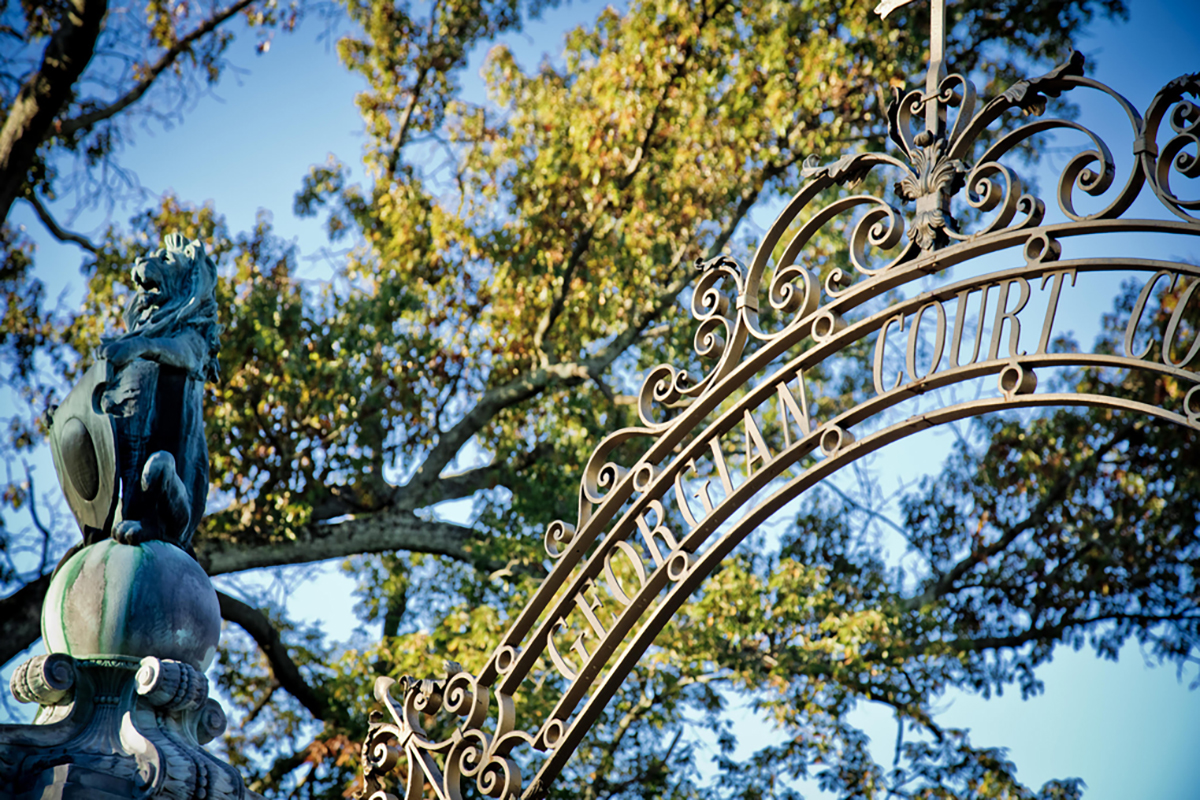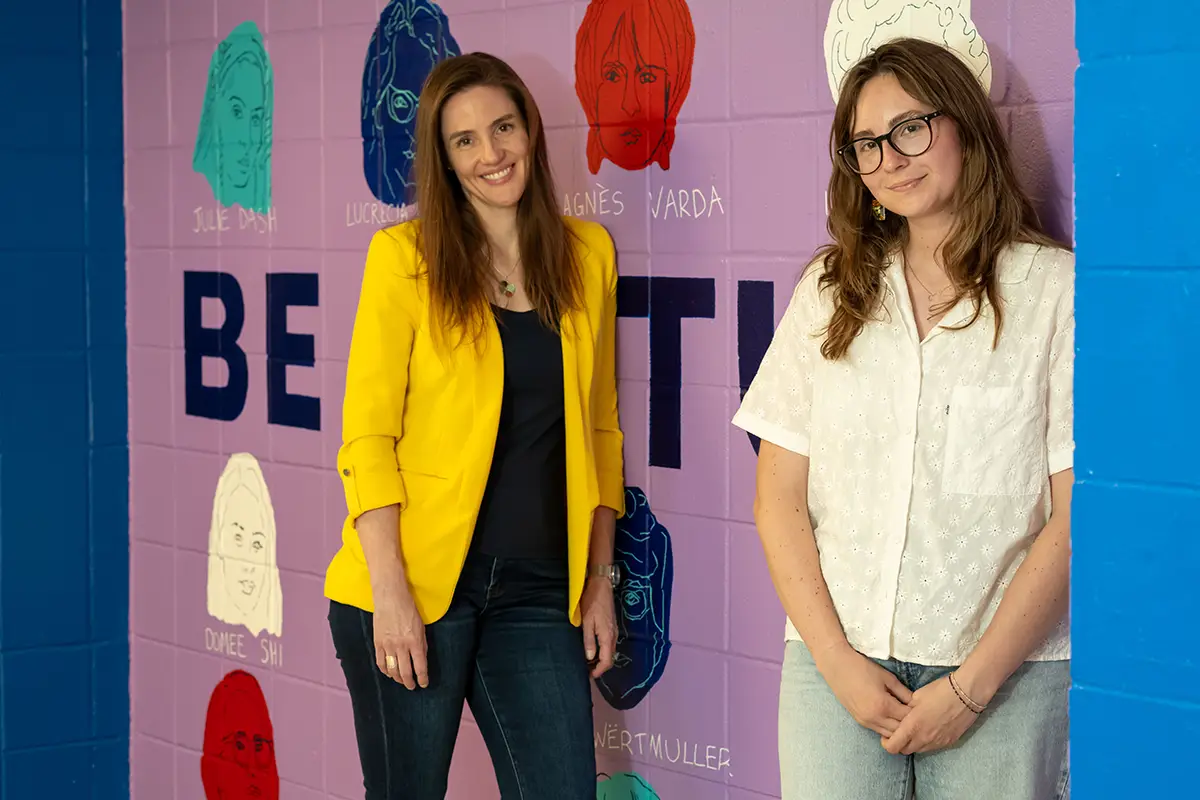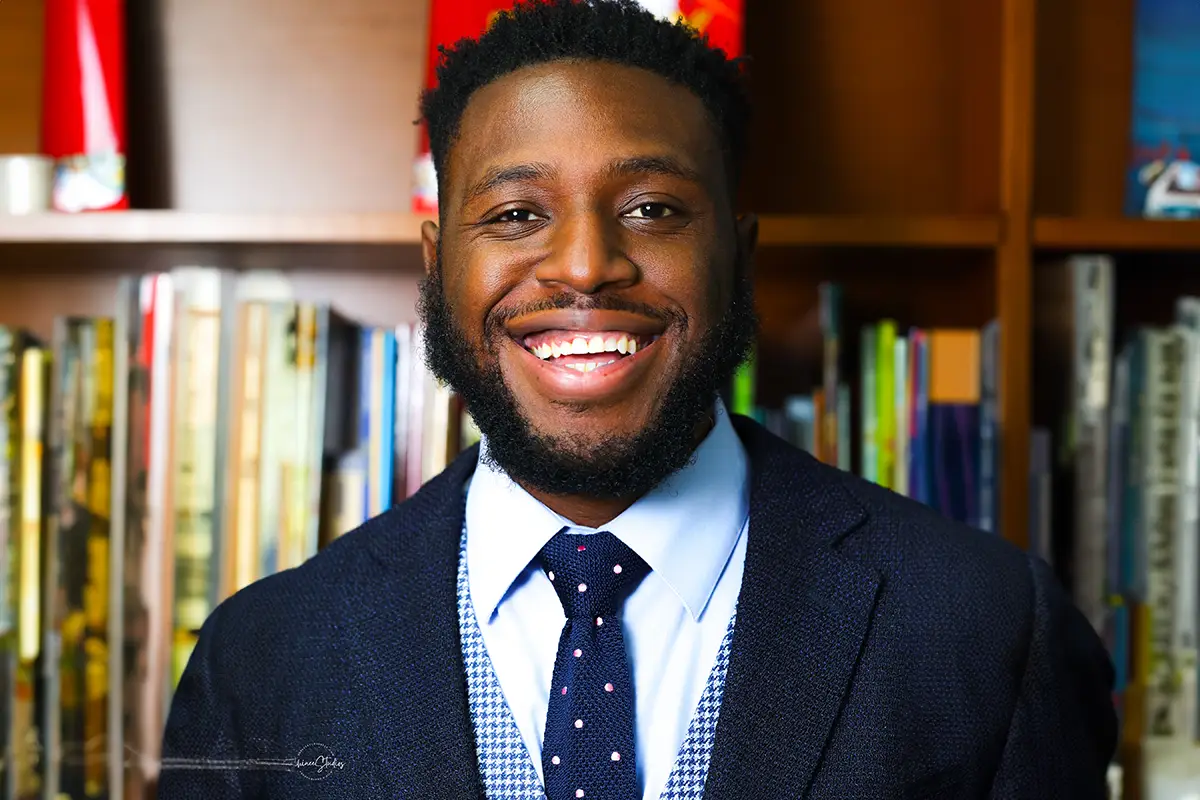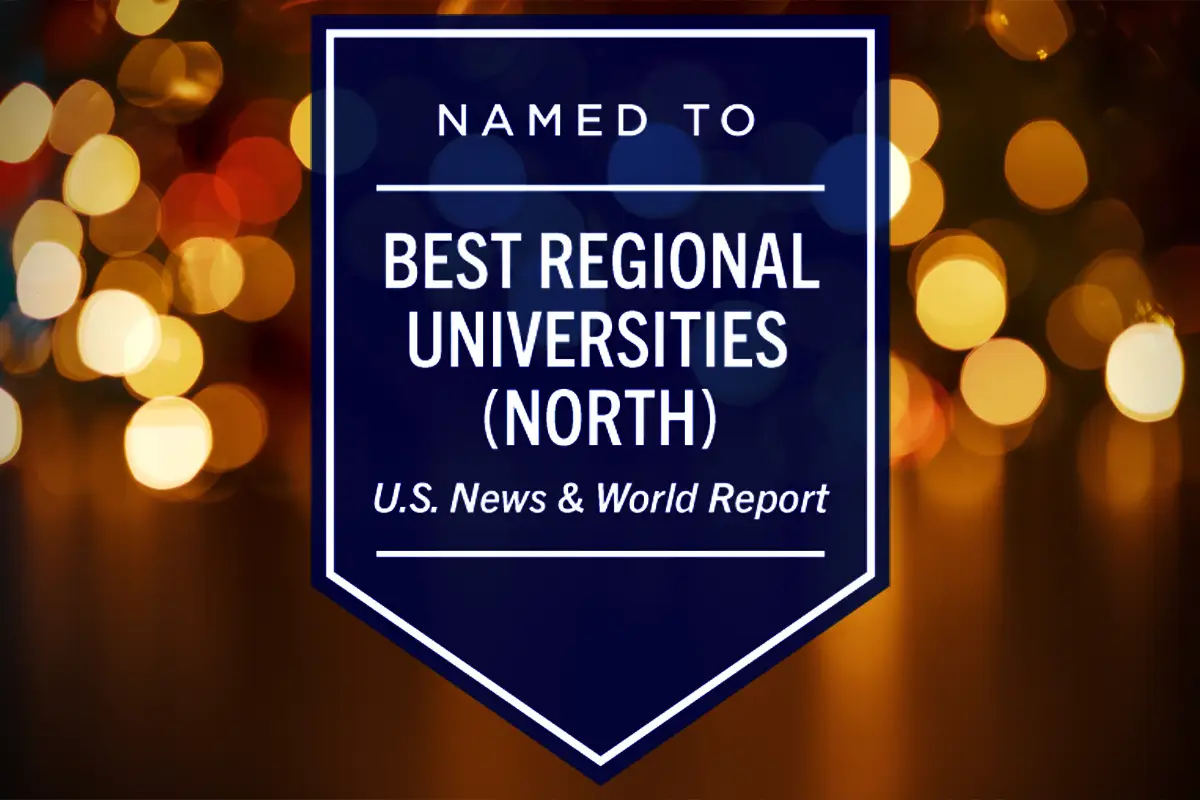Joshua Orgel ’21 spent his early career as a rabbi addressing people’s spiritual needs. Then came a change in interest, influenced by family members who work in health care. Today, the biology graduate, who headed to medical school in Fall 2021, tends to physical needs as an emergency medical technician (EMT)—a challenging call at any time, but especially during the pandemic.
“COVID-19 changed our protocols,” explains Mr. Orgel, a volunteer with the Hatzolah (“relief” or “rescue” in Hebrew) first aid squad in Lakewood. “We now gown up before approaching patients and wear N95 masks, which makes communication more difficult, especially with older people who have hearing loss. Children, too. The mask covers most of my face, so I smile with my eyes.”
Mr. Orgel is one of about 30 million Americans—including other Georgian Court University graduates and students—working on the pandemic frontlines. During his senior year, he balanced several priorities beyond his coursework: 5 to 10 EMT calls a week; a business partnership with his wife in Child SMART, a childcare center; and parenting five children under age 8, including an infant.
“In early morning, I get the kids ready for their day, then have about from 9:00 a.m. to 4:00 p.m. for my online classes and assignments,” said the 30-year-old. “That’s also when I go on about 80% of my EMT calls. When I come back home, I actually feel rested—it’s a break from classwork that others fill with a pick-up basketball game or computers—and then back to studying.”
The pandemic affected Mr. Orgel personally—he and his family had the coronavirus in September 2020—and deepened his commitment to the medical profession. “I’ve seen some COVID-19 patients who haven’t made it and the worst the virus can do,” he says. “And while COVID-19 will likely long be under control by the time I’m a doctor, being an EMT during the pandemic has made me even more passionate about medicine.”
Lessons in Adaptability
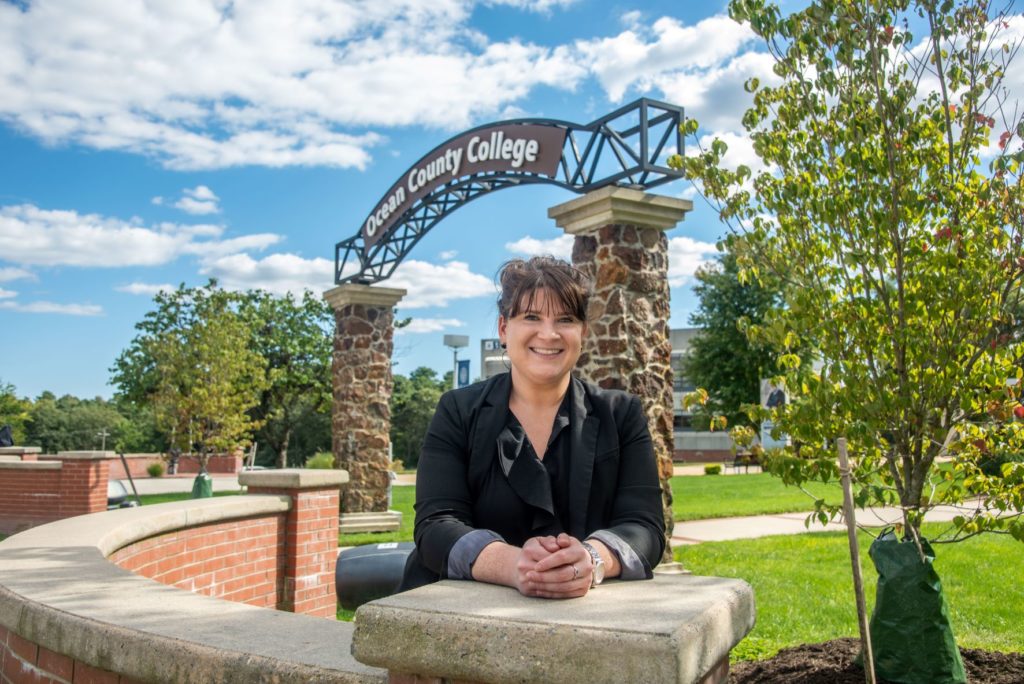
It took Samantha Glassford ’12 time to find her passion for teaching.
“I came to Georgian Court very shy and reserved, and not knowing at all what was ahead for me,” she said. English professors, such as Paul Cappucci, Ph.D., became valued mentors, and through campus experiences such as Women in Leadership Development (WILD), she found her calling: the college classroom.
For the past seven years, Ms. Glassford has taught English composition and literature at Ocean County College (OCC). She’s earned a reputation among students for being accessible, helpful, approachable—and even funny. While some classroom tactics have changed during the pandemic, she says, her desire to help OCC students be the best writers they can hasn’t wavered.
“We typically do a lot of workshop-style learning in composition classes, where students form small groups, engage with each other, and receive hands-on help,” explained Ms. Glassford. “Obviously, with remote learning that doesn’t work very well, so I make myself as available as I can with open office hours. I’ve removed some extraneous assignments and activities during the pandemic so students can bring me their best work on major projects.”
Ms. Glassford records her lectures so that students have the option of attending live or watching them later.
“Many of my students are ‘nontraditional’—older, with young children and working one or two jobs. In one classroom survey, I found at that least 75% of my students had jobs. They appreciate the flexibility,” she said, and something she, as a student herself, does, too. She earned her master’s degree in English from Monmouth University and is working toward a doctorate in educational leadership from Rowan University.
The Spring 2020 semester was a learning curve, but since then, remote learning has become second nature. However, she believes that the pandemic has changed the learning paradigm in higher education.
“My colleagues and I talk about this all the time. Hybrid class and remote learning won’t go away—they’ll remain options, and college education will look vastly different than it did before the pandemic,” she said. “The emergence of remote learning was inevitable—COVID-19 just accelerated it.”
Adapted from story by Sheila Noonan in the Fall 2021 issue of GCU Magazine. Photos by Jim Connolly.


